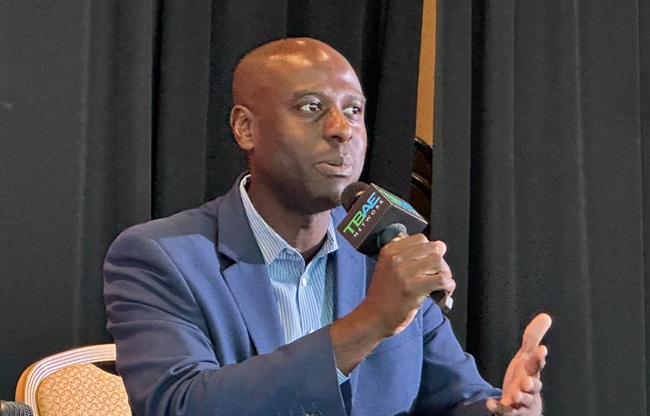By Liv Caputo, Florida Phoenix
A bill forcing all Florida employers to use a federal verification tool to determine whether new hires are legally in the country passed its first hurdle Wednesday.
HB 197, sponsored by Seminole Republican Rep. Berny Jacques, expands a 2023 law championed by Gov. Ron DeSantis to require all employers — not just public businesses and larger private ones — to use the online database, called E-Verify. This is Jacques’ second attempt to pass the expansion, and comes amid a national push by Republicans to increasingly crack down on illegal immigration.
“It simply enforces the law,” Jacques said in Wednesday’s House Industries & Professional Activities Subcommittee. “It’s already illegal to hire these unauthorized workers, and we have a system that will verify whether or not you are in compliance with the law.”
Passing along party lines, Jacques’ bill is a near-identical version of his measure from last year, which passed the Florida House with bipartisan support but never gained traction in the upper chamber. It changes current law to require E-Verify for all private businesses, not just those with at least 25 workers.
This year, Jacques hopes it will be different.
“I remain optimistic, but at the end of the day, you can only control what you can control,” he said, adding that the governor’s office has been “supportive and helpful” in backing his legislation. As for the Senate, Jacques says he’s spoken with some senators who’ve appeared “particularly” receptive to sponsoring a companion bill.
The Senate’s E-Verify bill in 2025 was never scheduled for a committee.
More than 475,000 small businesses in Florida have fewer than 20 employees, according to a 2025 report by the Small Business Administration. Not counting businesses without employees — of which there are more than 2 million — there are fewer than 518,000 total small businesses.
‘I just feel like we don’t need it…”
HB 197 faced slight pushback from Democrats on Wednesday. Rep. Angie Nixon, from Jacksonville, worried that demanding small business owners to implement E-Verify procedures could be “cumbersome,” especially for Floridians who may have started their practice “out of desperation.”
“I just feel like we don’t need it,” Nixon said. “It takes away from actually running the business.”
Although Nixon was joined by the three other Democrats on the committee in voting “no,” HB 197 will head next to the House Commerce Committee.
Immigration has become a major flashpoint nationally, led by President Donald Trump and mirrored by DeSantis in Florida political circles. Both conservative firebrands have encouraged massive upticks in detention and deportation, demonstrated by DeSantis supporting the construction of federally-partnered migrant detention centers and Trump mobilizing Border Patrol to supplant and aid Immigration and Customs Enforcement to expedite deportations.
In 2023, then-Senator Blaise Ingoglia sponsored the law to require private businesses with at least 25 employees to use E-Verify. It was part of a large immigration package that also required Medicaid-accepting hospitals to annually report how many undocumented immigrants they treat.
But ahead of the 2025 legislative session, months after Ingoglia’s E-Verify requirements were enacted, Florida Republicans began to criticize the DeSantis administration for failing to enforce the law for non-compliance. Statute requires businesses caught ignoring E-Verify laws three times within 2 years to face a $1,000 fine per day.
DeSantis then fired off warning letters to 40 companies either ignoring or refusing to implement E-Verify.
The 2026 session begins on Jan. 13.

